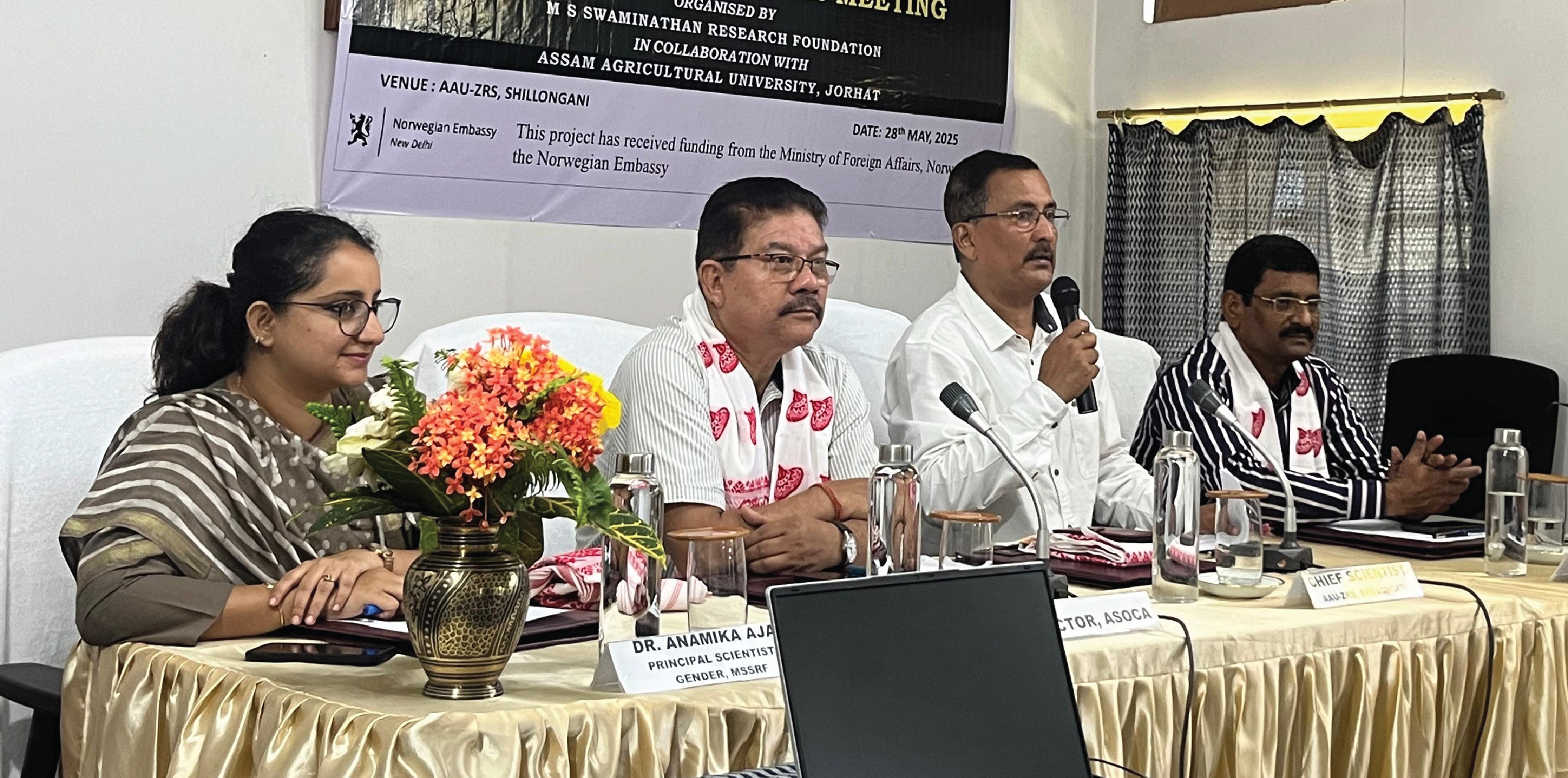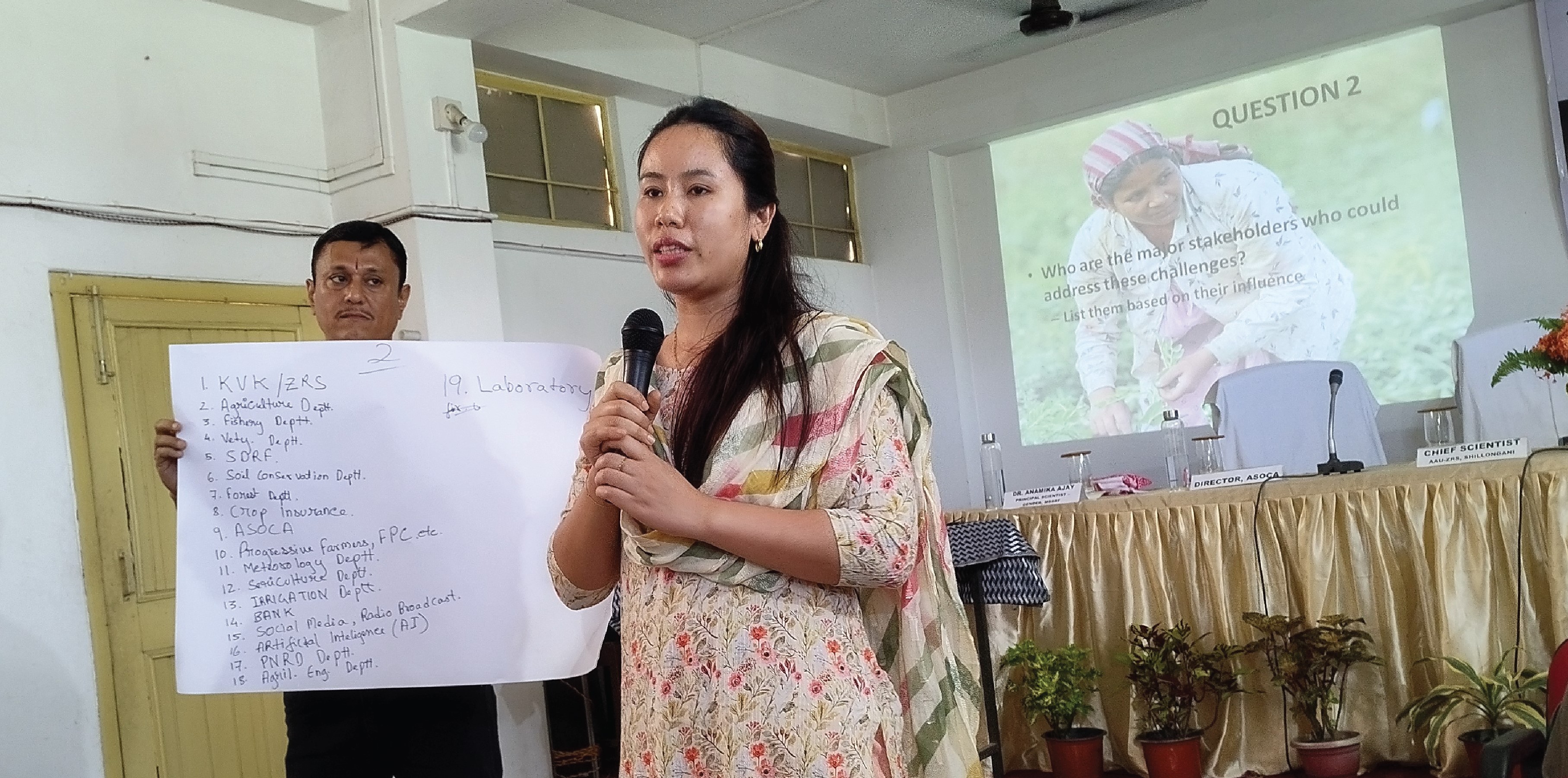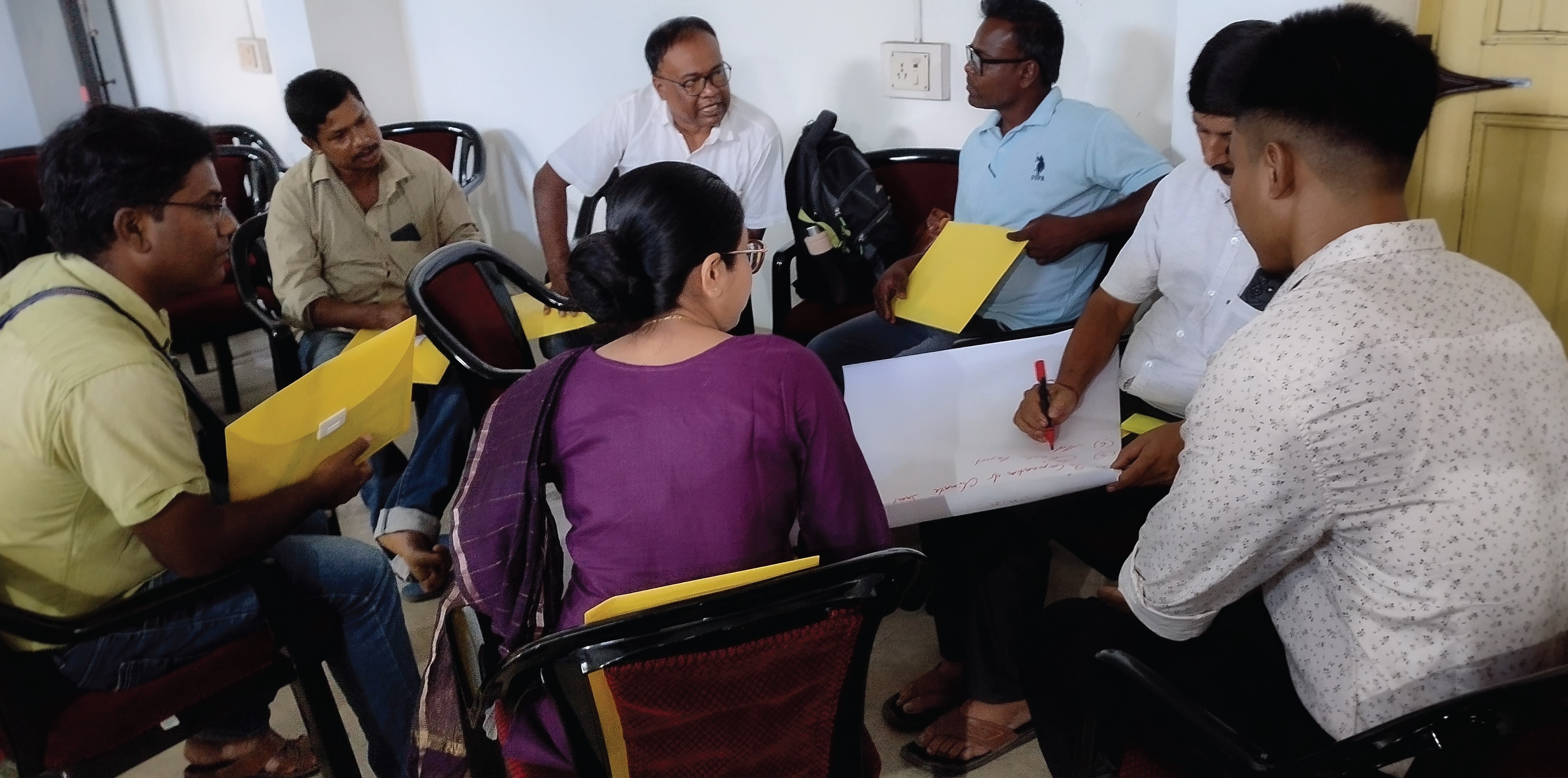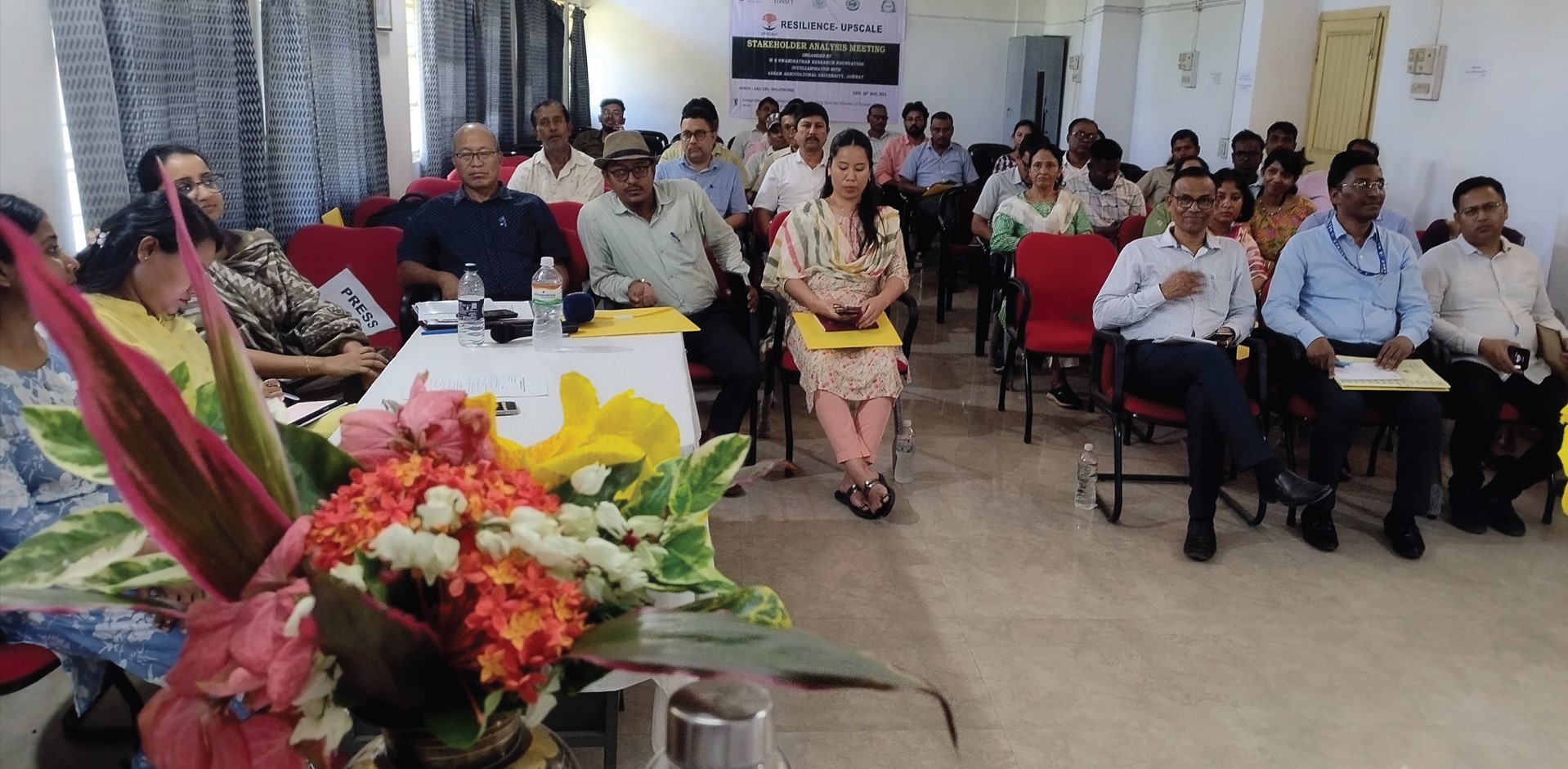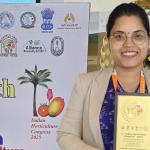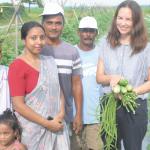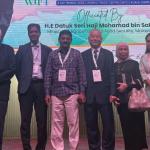Stakeholder engagement is critical for upscaling climate resilient agriculture technologies
One of the critical factors in upscaling climate resilient agriculture technologies is engaging with stakeholders at various levels. In the UPSCALE project, we are using significant time and resources to work jointly with the relevant agencies both local and state level, share our knowledge and link with the ongoing climate adaptation programs. The Assam Agricultural University (AAU) and the M S Swaminathan Research Foundation (MSSRF) jointly conducted a Stakeholder Analysis Workshop on 28th of May 2025 at the AAU-Zonal Research Station, Shillongani, Nagaon, under the Resilience-Upscale Project. The main objective of the workshop was to foster convergence and collaborative action to upscale climate-resilient agricultural technologies for the benefit of a larger farming community with the support of relevant stakeholders.
The workshop was attended by a diverse group of stakeholders, including representatives from AAU, Krishi Vigyan Kendras (KVKs), Departments of Agriculture and Horticulture, Seed Certification, Soil Testing, and Agricultural Engineering; Farmer Producer Organizations/Companies (FPOs/FPCs); progressive farmers; Assam Rural Livelihood Mission; Farmers’ Associations; NGOs working in agriculture and livelihood sectors; representatives from NABARD, World Food Programme (WFP), Fisheries Department; and All India Radio.
The project team members including Dr. Milon Jyoti Konwar, Scientist, Directorate of Research (Agriculture), Joint Principal Investigator of the Resilience-Upscale Project, and Dr. R. Rajkumar, Coordinator of the Resilience Project at MSSRF, presented an overview of the project’s activities, achievements, and plans for the Upscale initiative.
The workshop was presided over by Dr. Hironya Kumar Borah, Chief Scientist, AAU-ZRS Shillongani. The inaugural address was delivered by Shri Madhuram Patiri, Director, ASOCA (Assam Seed Certification Authority), who emphasized the critical role of quality seeds in boosting Assam’s agricultural economy. He also highlighted how their department supports the project partners and the stakeholders in supplying quality seeds to the farmers.
Following the formal presentations, participants were divided into four groups for a focused discussion. The group discussions were facilitated by Dr. Anamika Ajay, Principal Scientist – Gender, MSSRF, and Dr. Parinda Barua, Scientist, AAU-ARRI Titabar and Co-Principal Investigator of the Upscale Project.
The discussions focused on identifying key stakeholders, identifying the relevant technologies from the Resilience Project, and exploring ways in which these stakeholders can support the upscaling of these climate-resilient technologies through resource sharing, training, convergence with existing programs, and serving as resource persons.
Each group presented their findings, followed by open discussions among all participants. The deliberations underscored the need for multi-sectoral coordination, farmer-centric innovations, and strong institutional support to effectively scale up climate-smart technologies.
The stakeholder analysis workshop helped to identify and map all the relevant state and district-level stakeholders. The workshop helped in understanding the role and mandates, relevant policies, ongoing training programmes and field-level initiatives that support the promotion of Climate-Resilient and Resource-efficient Agricultural (CRRA) technologies aimed at improving the resilience of vulnerable groups, including farmers, women, and youth in the state of Assam. The mapping exercise also focused on the stakeholders’ outreach capacity and explored how they can be engaged or strategically linked with the UPSCALE project to enhance its upscaling potential. Furthermore, the analysis looked into the opportunities for integrating project outputs and results with the stakeholders’ ongoing or planned outreach and extension activities, thereby strengthening synergies and long-term sustainability of climate resilience efforts. A detailed plan will be prepared to engage with the specific partners in the project.
The workshop concluded with a vote of thanks by Dr. Niranjan Deka, Principal Scientist, Zonal Research Station, Shillongani, Nagaon.

